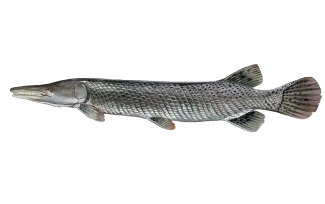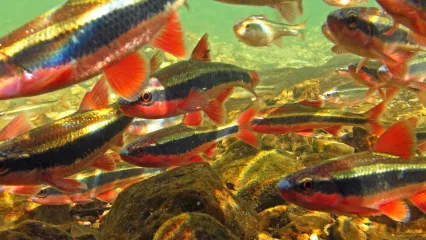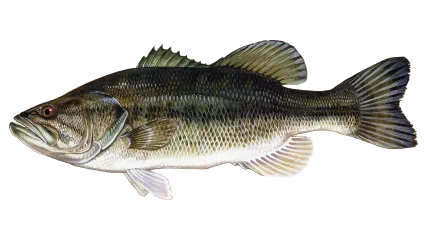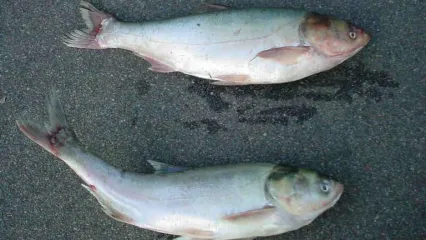
Description
Naturally reproducing populations of alligator gar are found in Texoma Lake, the Red River, and its tributaries.
Alligator gar have a long, cylindrical-shaped body and diamond-shaped scales. They are dark olive green in color, with a white underside, and dark spots on their dorsal, caudal, and anal fins. Alligator gar earned its name because of its crocodilian-shaped head and numerous large teeth. This is the largest of the gar species, with the state record weighing 254lbs and 12oz (June 2017) and over 7 feet long.
Facts: Threats and Reasons for Decline: The conditions needed for a good year class don’t happen every year. Some years will produce few to no offspring. The life history of this species is able to endure years of drought and low flow, but this means it could take years to recover from the effects of overfishing. This is why harvest is limited and is to be reported to us.
Habitat
Alligator gar prefer slow-moving water of rivers, bayous, and oxbows, but they seem to need flooded areas in order to spawn.
Food sources: Alligator gar prey mostly on fish, but they are opportunistic hunters and have been reported to feed on everything from birds and turtles to carrion.


